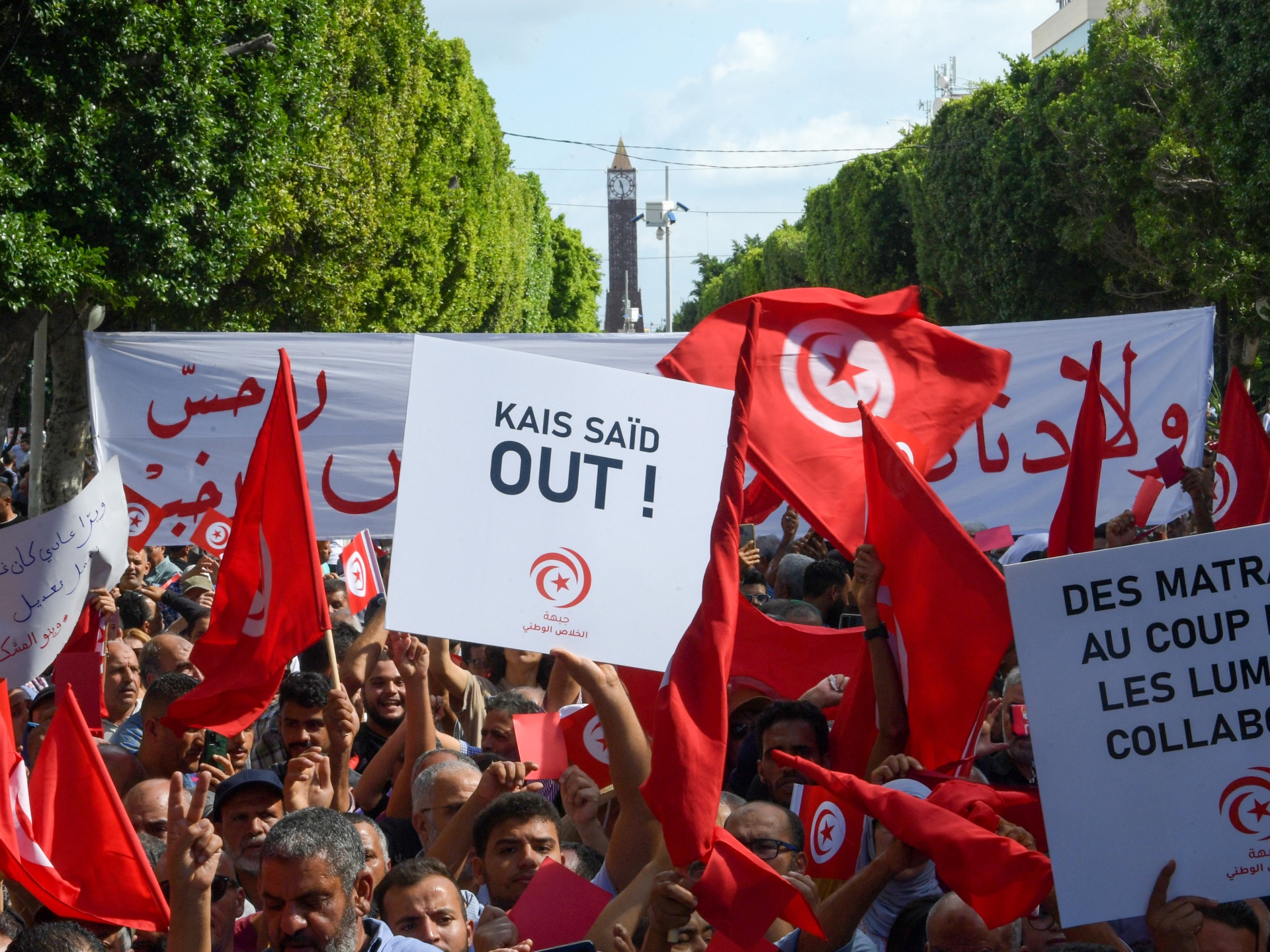Thousands protest in Tunis, accusing President Saied of a power grab and demanding accountability for economic crisis.
Thousands of Tunisians have demonstrated in the capital Tunis, denouncing President Kais Saied’s moves to consolidate political power and demanding accountability for the country’s long-running economic crisis.
Supporters from the Ennahdha party and the Free Constitutional Party held parallel rallies in adjacent areas of the capital, Tunis, on Saturday, accusing Saied of economic mismanagement and of an anti-democratic coup.
Protesters in the city centre chanted, “Down, down”, “Revolution against dictator Kais” and “The coup will fall,” the AFP news agency reported.
“Tunisia is bleeding. Saied is a failed dictator. He has set us back for many years. The game’s over. Get out,” protester Henda Ben Ali told the Reuters news agency.
Ali Laarayedh, Tunisia’s former prime minister and a senior Ennahdha official, told AFP that the protest was an expression of “anger at the state of affairs under Kais Saied”. “We are telling him to leave.”
Saied, who moved to rule by decree after shutting down parliament last year and expanding his powers with a new constitution passed in a July referendum, has said the measures were needed to save Tunisia from years of crisis.
In a speech on Saturday to commemorate the departure of French troops upon Tunisia’s 1956 independence, he demanded the departure today of “all who want to undermine independence” – an apparent allusion to his political foes.
Saied’s opponents have said his actions have undermined the democracy secured through a 2011 revolution that removed longtime leader Zine El Abidine Ben Ali and triggered the Arab Spring.

A worsening economic situation, compounded by supply shortages in the wake of Russia’s invasion of Ukraine in February, has agitated many in the North African country of 12 million.
If Saied stays, “Tunisia will have no future,” said Laarayedh, citing growing despair, poverty and unemployment.
Freelance journalist Elizia Volkmann told Al Jazeera that Tunisia has been seeing “serious food shortages”.
“You can’t walk into a supermarket without seeing gaping holes in products. There are whole shelves missing milk or sugar or rice; there is rationing here,” Volkmann said.
“What we’re seeing is a big impact on the middle classes. They’re hurting in a way that they haven’t done previously and right now there is a massive brain drain out of Tunisia.
“But certainly people in rural areas, they’re not so much interested in the political question of … whether [Tunisia] should be a democracy … what they’re really concerned with is just putting bread on the table and being able to eat and gaining access to water.”
Approximately 1,500 people joined the Ennahdha-led demonstration, while nearly 1,000 attended the Free Constitutional Party protest, the interior ministry told AFP.
In public remarks, Saied has argued he was working to “correct” economic troubles he had inherited from Tunisia’s post-Ben Ali leadership.
Cash-strapped Tunisia is in talks with the International Monetary Fund for a bailout loan of about $2bn.
